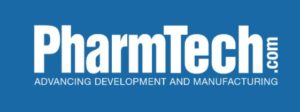Q: I work in the quality group for a manufacturer who makes intravenous (IV) injectable drugs using aseptic technique during processing. Recently, the facility has experienced an increase in the number of viable organisms in our environmental monitoring program. Management has asked me to do a risk assessment so we can use our resources effectively. Can you offer some advice on how I should proceed in putting together this assessment?
A: Aseptic processing of IV injectable drugs is certainly one of the riskiest manufacturing operations. Your management is correct to be concerned when there is a reported increase in the number of viable organisms in the environment.
It is often difficult to determine where a potential microbial ingress is coming from. This is why so much attention is given to monitoring personnel, equipment, air quality, etc., for microbial organisms and identifying and trending what those organisms are and where they are coming from.
Aseptic Risk Assessment
A risk-based approach to determine the source of the microbial increase is a good start. It is important to remember aseptic does not mean sterile. The objective in aseptic processing is to keep the product, components, and environment as close to sterile as possible. This is accomplished through:
- Proper building, equipment materials, and design
- Established and validated procedures for cleaning
- Proper training for personnel
- Continuous monitoring of personnel and environment
All of these aseptic technique examples can ensure the sterile core area and the areas supporting it are properly maintained at all times to avoid product contamination that would impact patient safety.
Aseptic Processing
 The first aseptic processing step in risk analysis for your facility is to break down your operations into the various steps. Conduct a safety assessment to determine the highest risk posed to those areas. The highest risk areas tend to be those where personnel are intimately involved. Of these areas, one of the most risky involves the aseptic technique lab and personnel gowning.
The first aseptic processing step in risk analysis for your facility is to break down your operations into the various steps. Conduct a safety assessment to determine the highest risk posed to those areas. The highest risk areas tend to be those where personnel are intimately involved. Of these areas, one of the most risky involves the aseptic technique lab and personnel gowning.
Proper gowning is crucial to the aseptic filling operation. In some cases, such as compounding pharmacies or manual fills for small clinical trial batches, it may be the only barrier between product and a human. Because we can’t sterilize the human being, we must consider the aseptic solution to make sure they understand proper gowning technique. A safety assessment must show employees fastidiously adhere to process so the patient can be assured the product and aseptic transfer is safe.
Aseptic Technique and Aseptic Filling
Proper aseptic technique is critical to maintaining the sterile environment where the aseptic product will be filled. The FDA finalized their guidance for industry titled Sterile Drug Products Produced by Aseptic Processing-Current Good Manufacturing Practice.
This document placed considerable emphasis on aseptic technique microbiology training and personnel behavior involved in the aseptic fill operation. It is important for the company to continually focus on personnel behavior to avoid complacency and potential product risk. As stated in the guideline:
“As operator activities increase in an aseptic processing operation, the risk to finished product sterility also increases. To ensure maintenance of product sterility, it is critical for operators involved in aseptic activities to use aseptic technique at all times.”
Aseptic Transfer
To establish an operator’s skills to prevent contamination of the culture being maintained , the company should have basic training topics covering personal hygiene. Proper aseptic technique during operations include gowning activities and plating techniques for microbial monitoring. In addition, the company should establish an ongoing training program about aseptic technique microbiology as a way to continually improve the operators’ performance.
This training should be documented by the quality department during a safety assessment. Aseptic technique examples that must be reinforced would appear in training records, evaluations of the operator to follow standard operating procedures (SOPs), and monitoring deviations. The concepts set forth in the FDA guideline are also mirrored in European regulations for breaches in aseptic technique during production.
Risk Assessment Process
One of the more critical areas of your risk assessment is the subject of hazards assessment. For example, proper gowning technique is important to the safety risk assessment. If an operator can’t follow the proper gowning requirements, the product will be at risk the moment the operator enters into the critical manufacturing area. It is interesting to note that in a recent draft guidance issued for compounding facilities, the failure to properly gown is considered to be an insanitary condition.
Another discipline that should be considered in your risk assessment plan is cleaning. The cleaning of the line after manufacturing is personnel dependent. If done incorrectly, documentation should include the risk evaluation of product manufactured on the line and the potential for microbial and/or cross contamination. There are many different disinfectant procedures, and it is important that they be executed effectively. Following the ICH Q9 quality risk management framework can help leadership maintain an understanding of an employee’s skills and ability to avoid product contamination.
Technical Risk Assessment
When establishing your technical risk assessment program, some of the highest risk areas/activities will be those with a high level of human involvement. Assessing those areas first as contributing factors to your environmental problem will help you effectively manage your resources. But be advised that whatever the risk assessment methodology you use to gauge each area/activity of aseptic manufacturing, the dynamic risk must be evaluated and vetted because any area could be the potential source of your microbial problem.
About the Article

Pharmaceutical Technology
Vol. 40, No. 10
Pages: 94, 92
About RCA’s Pharmaceutical Consulting Services
Regulatory Compliance Associates (RCA) has helped thousands of pharmaceutical companies meet regulatory, compliance, quality assurance, and remediation challenges. With more than 20 years of experience with FDA, Health Canada, EU and global regulatory agencies worldwide, Regulatory Compliance Associates® offers leading pharmaceutical consultants. We’re one of the few pharma consulting companies that can help you navigate the challenges associated with industry regulations.
Our pharmaceutical consulting firm includes over 500 seasoned FDA, Health Canada & EU compliance consultants and regulatory affairs experts who understand industry complexities. It’s a pharma consultancy founded by regulatory compliance executives from the pharmaceutical industry. Every pharmaceutical industry consultant on the Regulatory Compliance Associates team knows the unique inner workings of the regulatory process.
Client Solutions
Whether you’re in the product planning, development or pharmaceutical lifecycle management stage or need a remediation strategy for a compliance crisis, Regulatory Compliance Associates will guide you through every pharmaceutical consulting step of the regulatory process and create a customized approach depending on your product and your pharma company’s individual needs. Our regulatory compliance clients include:
- Companies new to FDA, Health Canada or EU regulations and regulatory compliance
- Start-up organizations with novel submissions to 510(k) submissions from multi-national corporations
- Investment firms seeking private equity due diligence for pre-acquisition and post-deal research
- Law firms seeking pharmaceutical consulting firm expertise in the remediation of warning letters, consent decrees, 483’s or import bans
Regulatory Affairs
Regulatory affairs is Regulatory Compliance Associates backbone. We exceed other pharma consulting companies with industry experts experienced in complexities of the pharmaceutical and biopharmaceutical industries. Our pharma consulting expertise spans all facets and levels of Regulatory Affairs, from Regulatory Support for New Products to Life Cycle Management, to other services like Outsourced Regulatory Affairs, Submissions, Training, and more.
As your partner, we can negotiate the potential assessment minefield of regulatory compliance services with insight, hindsight, and the clear advantage of our breadth and depth of knowledge and regulatory compliance consulting. We offer the following pharma consulting regulatory affairs services for pharmaceutical companies.
- New Product Support
- Product Lifecycle
- Other Regulatory Services
- Combination Products
Compliance Assurance
The regulations process surrounding pharmaceutical companies can be tricky for even the most experienced industry veteran to understand. Just one misstep could mean significant and lasting consequences for your business. At Regulatory Compliance Associates, we offer the pharma consulting experience and pharma consultants necessary to guide you through the quality compliance process.
- Assessments
- Audits
- Regulatory Agency Response
- Preparation and Training
- Inspection Readiness
- Data Integrity
Quality Assurance
Regulatory Compliance Associates Quality consulting includes assessments, strategy, implementations, staff augmentations, and identification of quality metrics to ensure continuous improvement. Our pharma consultants understand the strategic thinking needed to align your business needs and goals. Regulatory Compliance Associates quality assurance services include quality experts with experience spanning major corporations and start-ups. Our pharmaceutical consulting firm knows firsthand how to achieve, maintain, and improve quality, and we excel in transferring pharma consulting knowledge to your organization.
- 21 CFR Part 11
- Data Integrity
- Manufacturing Support
- Facility Support
- Quality Metrics
Remediation Services
Regulatory Compliance Associates has significant experience and a proven remediation services approach to managing FDA Warning Letters, Consent Decrees, and other serious regulatory situations. Our pharma consultants know how to partner with executive, legal, and communication teams, and will assist management with a response that the regulatory agency will accept and be realistic to execute. Regulatory Compliance Associates pharma regulatory consultants will develop a comprehensive proof book of documented evidence demonstrating the corrective action taken to remediate non-compliant issues.
In addition, each Regulatory Compliance Associates pharma consulting Expert understands compliance enforcement. We’ll prepare a comprehensive pharma consulting strategy to assist in your remediation efforts, drive continuous improvement, and maintain regulatory compliance with the regulations.
- Regulatory Action
- Regulatory Compliance
- Regulatory Enforcement
- Warning Letter
- 483 Observation
- Oversight Services
- Risk Management Plan
About Regulatory Compliance Associates
 Regulatory Compliance Associates® (RCA) provides pharmaceutical consulting to the following industries for resolution of life science challenges:
Regulatory Compliance Associates® (RCA) provides pharmaceutical consulting to the following industries for resolution of life science challenges:
- Life Sciences
- Pharmaceutical
- Biologic & Biotechnology
- Sterile compounding
- Medical device
- Lab Testing
We understand the complexities of running a life science business and possess areas of expertise that include every facet of R&D, operations, regulatory affairs, quality, and manufacturing. We are used to working on the front lines and thriving in the scrutiny of FDA, Health Canada, MHRA and globally-regulated companies.
As your partners, we can negotiate the potential minefield of regulatory compliance and regulatory due diligence with insight, hindsight, and the clear advantage of our unique expertise and experience.
- Founded in 2000
- Headquartered in Wisconsin (USA)
- Expertise backed by over 500 industry subject matter experts
- Acquired by Sotera Health in 2021
About Sotera Health
The name Sotera Health was inspired by Soteria, the Greek goddess of safety, and reflects the Company’s unwavering commitment to its mission, Safeguarding Global Health®.
Sotera Health Company, along with its three best-in-class businesses – Sterigenics®, Nordion® and Nelson Labs®, is a leading global provider of mission-critical end-to-end sterilization solutions and lab testing and advisory services for the healthcare industry. With a combined tenure across our businesses of nearly 200 years and our industry-recognized scientific and technological expertise, we help to ensure the safety of over 190 million patients and healthcare practitioners around the world every year.
We are a trusted partner to 5,800+ customers in over 50 countries, including 40 of the top 50 medical device companies and 9 of the top 10 pharmaceutical companies.
Commitment to Quality
Our Certificate of Registration demonstrates that our Quality Management System meets the requirements of ISO 9001:2015, an internationally recognized standard of quality.
To begin the Regulatory Compliance Associates scoping process today, please enter your information in the blue form below and click the submit button at the bottom of the webpage.


